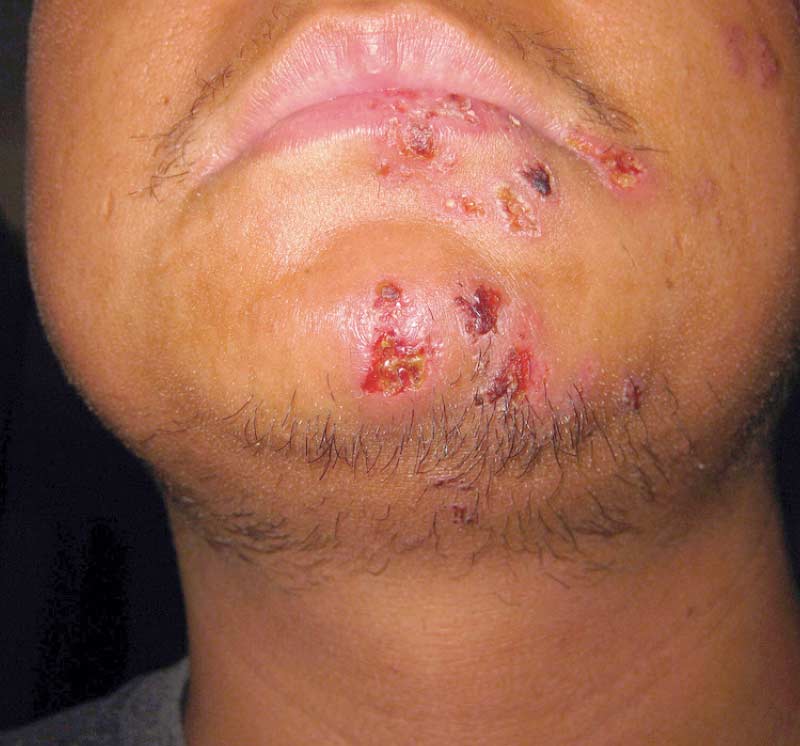Shingles, Herpes Zoster
A One-Sided Facial Rash
Dear Doctor,
I went in to have a regular cleaning at my dentist's office, but the hygienist said she couldn't treat me because I have a rash on one side of my face that might be shingles. Can you explain?
Dear John,
Thanks for bringing up this important — and often misunderstood — topic. Let's begin by explaining how you may have become exposed to the virus that causes shingles, and how it can affect your body.
 |
| Photo by brownpau (Flickr) entitled "Shingles Lesions (Varicella Zoster, Trigeminal/Mandibular)" |
Shingles is a recurrent form of chicken pox, a viral disease that can lie dormant in your nervous system for years. Chicken pox (sometimes called varicella) is caused by the varicella zoster virus (VZV), one of the eight known human herpes viruses. When you get this disease in childhood, it usually clears up on its own. But if you had chicken pox as a child — as some 90% of adults in the U.S. did — then it's possible you can develop shingles later in life.
For reasons that aren't fully understood, in 20-30% of people the virus becomes active again, decades later; in fact, the majority of people who suffer from shingles are over 50 years of age. Before the onset of shingles, many people initially develop an itching or burning feeling on the skin, a sensation of numbness or sensitivity to touch. This is often followed by a red rash, which may form crusty lesions. Some also experience pain, fever, and fatigue. In rare cases, the pain may mimic that of a toothache.
A distinctive feature of shingles is that it affects nerve dermatomes — that is, areas on the skin that are supplied by a single nerve. For this reason, the rash it produces often appears in a belted or striped pattern on one side of the body. While it commonly shows up on the torso, it can also affect the head, neck or facial area. This is likely the rash your hygienist is noticing.
Shingles is a recurrent form of chicken pox, a viral disease that can lie dormant in your nervous system for years.
In its early stages, the varicella zoster virus can be transferred from person to person. It can spread via direct contact with blisters, or through airborne respiratory secretions; that's what makes it so easy for kids to get chicken pox. But it's generally more of a concern for adults — particularly those who are pregnant, undergoing treatment for cancer or other serious diseases, or have compromised immune systems. These people are at risk for developing more serious complications from the disease.
That's why it's important to tell your dental professionals if you are (or may be) suffering from an episode of shingles — and for health care providers to recognize it. Due to the risk of infection, procedures that could result in spreading the virus — teeth cleaning with an ultrasonic device, for example — should be put off until a time when the virus isn't transmissible.
If you are diagnosed with shingles, your doctor or dentist may recommended that you start antiviral treatment immediately. Prescription antiviral medications such as acyclovir or famciclovir, started within 3 days of getting shingles, can significantly reduce the pain associated with this disease — and could even prevent some other, more serious, complications.
There's one more thing you can you do if you are at risk for shingles: Get the shingles vaccine. The U.S. Centers for Disease Control recommends that adults over 60 get it, whether they recall having had chicken pox or not. The vaccine, available in clinics and doctor's offices, has proven effective in preventing this disease.




